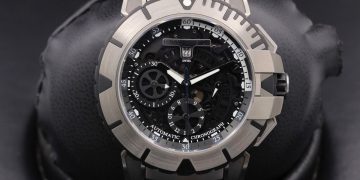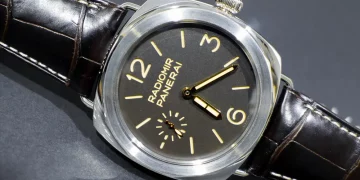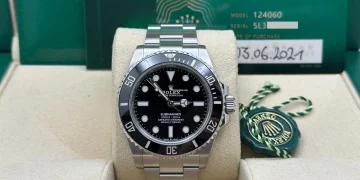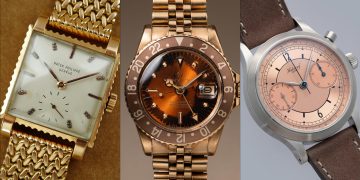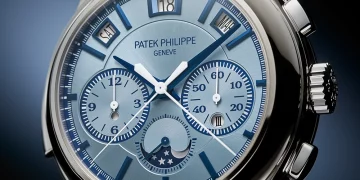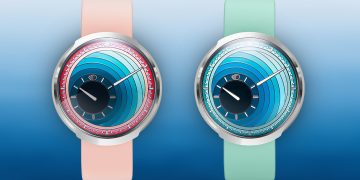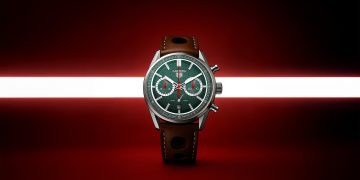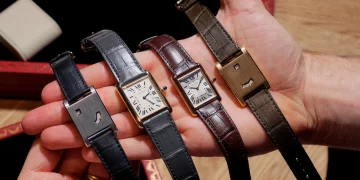Introduction
Luxury watches are not just tools to keep time; they are investments, symbols of status, and expressions of exquisite craftsmanship. Whether it’s a Patek Philippe, Rolex, or Audemars Piguet, high-end watches are crafted with the utmost attention to detail, precision, and longevity. However, despite the robust engineering and superior craftsmanship, these timepieces require professional maintenance services to ensure they continue to function optimally.
In this article, we will delve into the various reasons why every high-end watch needs professional servicing. From preserving the watch’s accuracy and extending its lifespan to maintaining its value and aesthetic appeal, regular professional maintenance is essential for these intricate timepieces. We will explore the complexity of mechanical movements, the importance of specialist tools and expertise, and the consequences of neglecting professional service.
1. The Intricate Nature of High-End Watch Movements
1.1 Understanding Mechanical Movements
- Mechanical Watch Mechanics: Unlike digital or quartz watches, high-end watches use mechanical movements, which consist of hundreds of tiny components working in unison. Discuss the different types of movements (manual, automatic) and how these complex mechanisms function.
- Components Involved: Explain the critical components of a mechanical movement, such as the escapement, mainspring, balance wheel, and gears. Highlight how each of these components works together to ensure accurate timekeeping.
1.2 Sensitivity to External Factors
- Impact of Wear and Tear: Over time, mechanical movements are affected by daily wear, temperature fluctuations, magnetic fields, and moisture exposure. While these movements are engineered for durability, they can still face issues like friction, oil degradation, or rust without proper care.
- Importance of Regular Lubrication: Discuss how lubrication ensures that the delicate components of a high-end watch continue to move smoothly. If left unchecked, improper lubrication or dried oil can lead to damage.
2. Expertise and Specialized Tools in Professional Maintenance
2.1 Precision Required in Repairs and Servicing
- Delicate Workmanship: Professional watchmakers undergo extensive training to gain the expertise needed to service high-end watches. Maintaining and repairing such intricate timepieces requires years of experience and knowledge of specific watch brands and models.
- Specialized Tools: High-end watches require the use of specialized tools for repair and maintenance. Discuss the importance of watchmaking equipment such as watchmakers’ loupes, timing machines, and calibration tools, which allow experts to work with a level of precision that would be impossible with standard tools.
2.2 Brand-Specific Knowledge and Training
- Manufacturer-Approved Service Centers: Many luxury watch brands, such as Rolex or Patek Philippe, require owners to service their timepieces only through official, authorized service centers. These centers are equipped with brand-specific parts and maintain strict adherence to the watchmaker’s original specifications.
- The Role of Authorized Technicians: Explain how authorized technicians are trained to understand each brand’s unique movement systems and repair protocols, ensuring that the watch is restored to its original condition.
3. Maintaining the Watch’s Accuracy and Longevity
3.1 Regular Servicing Ensures Accuracy
- Role of Calibration and Testing: Watches need to be calibrated and tested regularly to maintain their accuracy. Mechanical watches, especially high-end ones, can lose or gain a few seconds over time due to wear or external factors.
- Timing Machines: Explain how high-end watches are tested using timing machines that measure their precision and how professionals adjust the movement to improve performance, ensuring that the watch keeps accurate time.
3.2 Prolonging the Life of a Timepiece
- Preventive Maintenance: Just like any finely engineered machine, a high-end watch benefits from preventive maintenance. A small issue, such as a tiny piece of dirt or dust inside the movement, could cause irreparable damage if left unchecked.
- Replacing Worn-out Components: Over time, the watch’s components such as seals, gaskets, and springs may wear down. Professional servicing ensures that these components are replaced before they cause further damage.
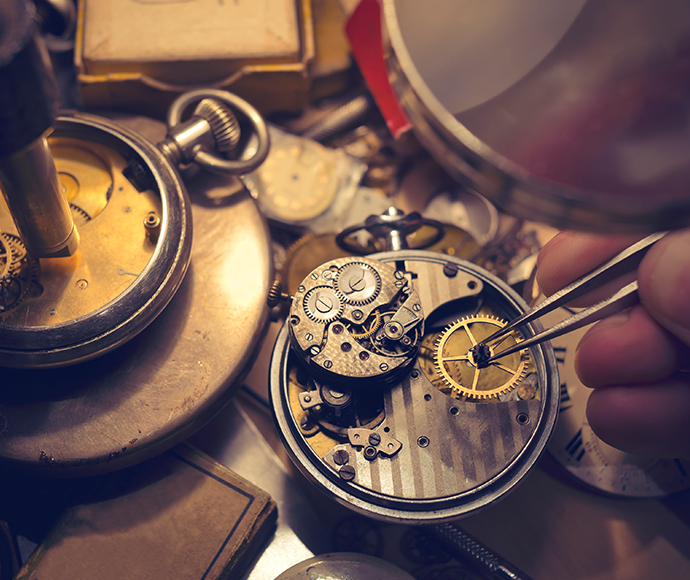
4. Preserving the Value and Aesthetic Appeal
4.1 Maintaining the Watch’s Value
- Impact of Servicing on Resale Value: A well-maintained luxury watch retains its value over time and can even increase in value, especially when kept in pristine condition. Neglecting regular maintenance can lead to depreciation in both function and value.
- Documentation of Service History: Many collectors place a premium on watches that come with a complete service history. Professional servicing ensures that the watch is maintained to factory specifications, which can be crucial when it comes to resale value.
4.2 Aesthetic Considerations
- Cleaning and Polishing: Professional servicing includes the cleaning and polishing of the watch’s exterior, including the case, bracelet, and crystal. Over time, dirt and oils accumulate on the watch, which can dull its appearance.
- Maintaining Water Resistance: Discuss how the watch’s water resistance capabilities can degrade over time due to worn gaskets. Professional maintenance involves resealing the watch to ensure that it remains water-resistant, preserving both its functionality and appearance.
5. The Risks of Neglecting Professional Servicing
5.1 Consequences of DIY Repairs
- Damage from Improper Handling: Many enthusiasts may attempt to repair or maintain their watches themselves. However, this often results in unintentional damage, such as scratches, incorrect assembly, or missed repairs. Highlight why amateur attempts can reduce the lifespan of the timepiece.
- Lack of Specialized Knowledge: Even skilled watch enthusiasts may lack the specialized knowledge required for intricate repairs, such as calibrating the movement, reassembling the mechanism, or replacing critical parts with the correct components.
5.2 Long-term Consequences of Neglecting Servicing
- Potential Mechanical Failures: Failure to service a high-end watch regularly can lead to mechanical failures that could be costly or impossible to repair. Discuss specific issues that arise from lack of service, such as rust, corrosion, and permanent damage to vital components.
- Decreased Performance and Functionality: Over time, watches that are not serviced may experience poor timekeeping, inefficient winding mechanisms, or erratic performance due to wear on the movement. This diminishes the functionality of the timepiece.
6. Frequency and Costs of Professional Watch Servicing
6.1 How Often Should You Service Your Watch?
- General Guidelines: Most high-end watchmakers recommend servicing their watches every 3-5 years, although this can vary depending on the brand, the type of movement, and how often the watch is worn.
- Signs Your Watch Needs Servicing: Discuss common signs that indicate a watch needs professional attention, such as irregular timekeeping, difficulty winding, or condensation under the crystal.
6.2 The Cost of Professional Servicing
- Pricing Considerations: Professional maintenance services for luxury watches can be costly, with prices varying based on the brand, the complexity of the movement, and the type of servicing required. Discuss the importance of investing in quality servicing as a way to protect and preserve the timepiece’s long-term value.
- Cost vs. Value: Emphasize the importance of regular servicing in ensuring that the watch continues to function optimally. While servicing may seem expensive upfront, it can save the owner from costly repairs in the future.
7. Conclusion
In conclusion, the importance of professional maintenance for high-end watches cannot be overstated. These timepieces, with their intricate mechanical movements and delicate components, require regular servicing to ensure their accuracy, longevity, and aesthetic appeal. Professional watch servicing preserves the craftsmanship, maintains the watch’s value, and prevents potential damage from neglect.
Whether it’s for restoring accuracy, preventing costly repairs, or protecting the value of a cherished timepiece, professional maintenance is an essential part of owning a luxury watch. As collectors and enthusiasts continue to appreciate the art of horology, ensuring that their watches are serviced by experts will guarantee that these pieces of history, craftsmanship, and artistry continue to function as intended for years to come.



